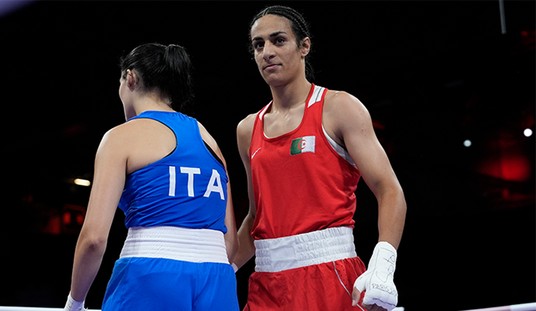Are you ready for Hillary? If not, this is a week to turn off the television, put aside your morning paper, get off the Internet, never look at your Twitter feed, avoid Facebook and stay out of bookstores…
The book is a careful document designed to preserve, perhaps burnish, future possibilities. The disagreements she outlines are described in collegial terms — although she does mention a “shouting match” with then-CIA Director Leon Panetta over a drone strike. In some cases, she suggests that she had differences with White House officials on policies that ultimately went awry. She says she had reservations, for example, about taking a hard-line stance with Israel over new settlements as Obama initially did.
In her book, Clinton addresses her possible candidacy with a teasing line. “Will I run for president in 2016?” she writes. “The answer is, I haven’t decided yet.” Yet the last few chapters shift from foreign policy to domestic issues with which a future president will have to grapple. The book ends with this: “The time for another hard choice will come soon enough.” In fact, it’s difficult to find anyone with a Clinton connection who does not believe she will be a candidate.
Democratic presidential front-runner Hillary Clinton’s new memoir “Hard Choices” officially launches Tuesday morning, but it’s already being savaged by critics for being overly cautious and, as a result, uninteresting.
“TRUTH BOMB 1: ‘Hard Choices’ is a newsless snore,” Politico’s Mike Allen wrote in his Monday-morning newsletter. He went on to describe the book “written so carefully not to offend that it will fuel the notion that politics infuses every part of her life.”…
“TRUTH BOMB 2,” Allen wrote. “It probably won’t matter. Reporters all raced to get pieces of the book first, the rollout has been masterful, and Americans will see Secretary Clinton at her most likable.”
In private meetings and public statements ahead of her book’s publication, Hillary Clinton and her allies have presented a united front with President Barack Obama, highlighting their transition from campaign rivals to Cabinet confidants…
“Her record is our record,” former National Security Council and Obama adviser Tommy Vietor, who has joined Clinton’s team to handle response to her book, told Democrats at a recent briefing in Washington…
To that end, describing her often hawkish approach to foreign policy at State is less about Clinton positioning herself as strong – polls show voters believe she is – than it is about not getting dragged down by a president who, according to public opinion surveys, is increasingly seen as ineffective.
“Obama’s taken a lot of hits on foreign policy. He’s not seen as a [strong] leader,” said Ian Bremmer, a foreign policy expert and president of the nonpartisan Eurasia Institute.
In an exclusive interview with ABC’s Diane Sawyer, Hillary Clinton said she views the criticism over her role in the deadly 2012 attack on the U.S. consulate Benghazi, Libya as “more of a reason to” — rather than not to — run for president in 2016.
“Actually, it’s more of a reason to run, because I do not believe our great country should be playing minor league ball. We ought to be in the majors,” Clinton said. “I view this as really apart from — even a diversion from — the hard work that the Congress should be doing about the problems facing our country and the world.”
Hillary Clinton has issued conflicting statements on whether she believes the controversial Sgt. Bergdahl prisoner swap was the right thing to do. Initially, she praised the swap, only to promptly backtrack and question the deal…
“I don’t believe in second guessing people who have to make these hard choices,” she said during a lecture evening in Denver, Colo. while promoting her new book. “We do have a tradition – I ascribe to it, it’s a tradition that’s not only embedded in our military but in our country – and that is we try not to leave any of our soldiers on the field. We try to make sure that, insofar as possible … we bring them home.”
Shortly after this, aides began saying Hillary was skeptical of the Taliban-Bergdahl swap, as reported by The Daily Beast.
“Secretary of State Hillary Clinton was personally and intensely involved in the debate over swapping five Taliban commanders for Sgt. Bowe Bergdahl in 2011 and 2012. But she had severe reservations about the potential deal, and demanded stricter conditions for the release of the prisoners than what President Obama settled for last week,” wrote Josh Rogin.
[A]t some point between now and 2016, it will be in Hillary’s interest to differentiate herself from the current administration so as to avoid the drag that an almost lame-duck president inflicts. And it will be in Obama’s interest to resist that differentiation, lest members of his own party prematurely decide that Hillary is their de facto leader. (Imagine members of Congress calling Hillary rather than the White House for direction in 2015 and you begin to see the downsides for Obama.) It wouldn’t be hard to read Clinton’s book as an early push in this inevitable shoving match.
But it turns out that there are powerful reasons for the two camps to stick to the arrangement for as long as possible, even through what would appear to be a provocation as serious as the Clinton book. For Hillary, no political persona has been more rewarding than her team-player persona. Her approval rating jumped 10 points when she agreed to become secretary of state in 2008, the significance of which was not lost on her advisers. As Jonathan Allen and Amie Parnes report in their book HRC, sublimating her political ambitions to the Obama agenda was one of her team’s key self-imposed imperatives during her tenure as secretary. “The second she becomes political and partisan,” a Clinton campaign adviser told Allen and Parnes, “she becomes a little bit more radioactive.”
Since this is Hillary week, here are a couple of suggestions I’d make for getting queasy Obamaites like me off the fence. The first, especially in the next year or so, is an indication that while Clinton will obviously be different than Obama, in a few key respects, she will be vital to his legacy. In other words, a Clinton campaign in 2016 would not be zero-sum, as Obama’s was in 2008. It would be both an expression of support for Clinton but also for Obama.
I see her potential victory as confirming two big Obama-era shifts: universal healthcare and a less reactionary Supreme Court. In those two areas, Clinton would entrench Obama’s achievements, the way George H.W. Bush did Reagan’s. Of course, Obama is highly unlikely to end his two terms with Reagan’s ratings, so this will not be easy. On the other hand, it makes Clinton’s task as president less of an onerous one. She will not have to grapple, as Bush did, with matching his superstar predecessor, and also being vulnerable with the base. She has a superstar mantle herself – the first woman president – and an extraordinarily wide base of support in the grass roots. She’s right, in other words, not to run against Obama. If she’s canny, she’ll use him as well as he used her in 2008.
Clinton has probably burnished her résumé by serving as secretary of state. But her approval ratings haven’t risen because Americans have intimately followed her diplomatic strategy in Burma and the Middle East. They’ve risen because she’s no longer representing partisan combat. That’s why first ladies are almost always popular (the only recent exception being Clinton herself, a problem she solved by removing herself from the partisan spotlight), and it’s why even hated former presidents like Jimmy Carter and George W. Bush recover their popularity.
But by definition, it’s not a strategy that can survive a presidential campaign. The project of transferring conservative rage back from Obama to Clinton has only just begun. If — or, more accurately, when — Clinton gains her party’s nomination, Republicans will forget all the things they learned to appreciate about her when Obama displaced her as the leader of the Democratic Party a half-dozen years ago. By this time in 2016, it is just as likely that Clinton will need to attach herself to Obama’s popularity as the other way around.
I wonder if this week could be high water mark of the Hillary campaign, and if it could be all downhill from here. I even wonder if the downhill pace could be so fast that she decides next year not to run.
Wishful thinking? Perhaps. But consider this possibility. Hillary has entered a risky zone. She’s a celebrity. That’s great as long as you can pull it off, being famous for being famous, people talking about you even if you’re not doing much of anything. But celebrityhood can also fade pretty fast. People can get bored with someone who’s famous for being famous. It can occur to them that that person isn’t saying anything particularly interesting or doing anything particularly notable.
Obviously the hype will generate big book sales at first, and maybe a few additional TV viewers. But I’m doubtful this can be sustained. And when the next month is finished, Hillary won’t be back where she began. Hype followed by letdown, puffery followed by debunking, doesn’t restore you to the position you occupied before, when there was anticipation in the air. High expectations and over-exposure aren’t a recipe for success. You end up deflated, worse off.
To invoke an example from this year’s grim centennial, the post-Obama Democratic Party could well be the Austro-Hungarian empire of presidential majorities: a sprawling, ramshackle and heterogeneous arrangement, one major crisis away from dissolution.
But this is where Hillary Clinton comes in. If her party is Austria-Hungary, she might be its Franz Josef — the beloved emperor whose imperial persona (“coffered up,” the novelist Joseph Roth wrote, “in an icy and everlasting old age, like armour made of an awe-inspiring crystal”), as much as any specific political strategy, helped keep dissolution from the empire’s door.
I really have no idea what proposals Clinton will run on, what arguments she’ll make. But as with Franz Josef, it’s not her policies that make her formidable; it’s the multitudes that “Hillary” the brand and icon now contains. Academic liberalism and waitress-mom populism and Davos/Wall Street/Bloomberg centrism. Female empowerment and stand-by-your-man martyrdom. The old Clintonian bond with minority voters and her own 2008 primary-trail identification with Scots-Irish whites. And then the great trifecta: continuity with the Obama present, a restoration of the more prosperous Clintonian past and (as the first … female … president) a new “yes we can” progressive future.
Like the penultimate Hapsburg emperor with his motley empire, then, she has the potential to embody a political coalition — its identities and self-conceptions, its nostalgias and aspirations — in ways that might just keep the whole thing hanging together.
Via RCP.







Join the conversation as a VIP Member